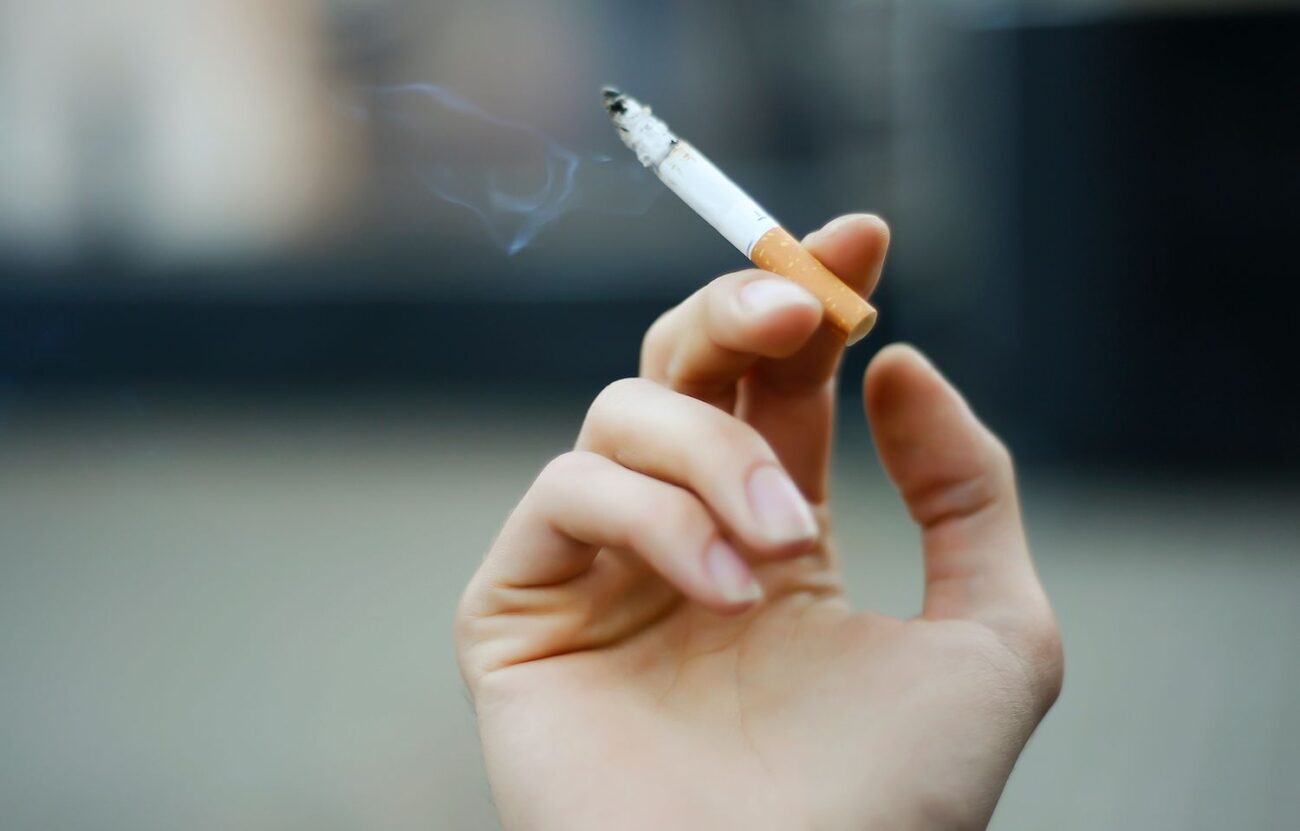You likely already know that tobacco, whether smoked, chewed, or otherwise ingested, can pose a serious threat to your health. Tobacco contains many harmful toxins that can increase your risk of cancer while also damaging other organs in your body. It can also harm your blood vessels, and smokers have a greater risk of developing vein diseases like varicose veins.
When you understand the dangers tobacco can introduce to your vascular system, you may feel encouraged to quit smoking or otherwise use tobacco. It is never too late to quit tobacco. Read on to learn details about how tobacco can negatively impact your veins.

How Does Using Tobacco Products Affect Your Veins?
Nicotine, a chemical found in cigarettes, has many detrimental effects on your body, including your veins. The toxin makes the blood vessels narrow, restricting the blood’s ability to flow where needed in your body. You can see higher blood pressure and face a greater risk of medical emergencies like strokes and heart attacks as a result.
The toxins in cigarette smoke also weaken the inside of the blood vessels. Then plaque, a fatty build-up, can more easily accrue within the veins. This also narrows the blood vessels while increasing the risk of clots.
Both of these serious effects from tobacco usage can affect your risk of vein diseases too. While not a direct cause of varicose veins, smokers face a greater chance of forming this problem.
Constriction within the blood vessels may increase the likelihood of damaging a valve within the vein. Then blood may start to pool and collect within the vein rather than flow as it should.
This can leave you with uncomfortable and unsightly bulging within the veins. The disorder is commonly known as varicose veins and will require treatment from a specialist to fix.
What Happens to the Veins When You Stop Using Tobacco?
When you stop smoking or otherwise taking tobacco, the health risks will lessen very quickly. Within the first day following quitting tobacco, you can see stabilized blood pressure as your blood vessels return to their normal size. This will reduce the chances of cardiac emergencies as well as vein diseases.
After several years without smoking, your cardiovascular system will be as healthy as someone who never smoked. So you should cease a tobacco habit as soon as possible to begin eliminating these health risks.
If you already have varicose veins, they will not go away when you stop smoking. You will need to seek treatment to address the already damaged valve within the blood vessel. Your vein specialist will evaluate the affected vein and recommend treatment according to your unique needs and preferences.
Frequently Asked Questions
Does using e-cigarettes or smokeless tobacco reduce the risk of varicose veins?
Any form of tobacco or nicotine can still harm your vascular system by promoting blood vessel constriction and inflammation. E-cigarettes and smokeless tobacco can carry the same toxins that elevate blood pressure and damage the lining of your veins. They might be less harmful than traditional cigarettes in some ways, but they do not fully eliminate vascular risks. If you’re aiming to protect your veins, it’s best to quit tobacco in all forms.
Will quitting tobacco now fix existing varicose veins?
Unfortunately, stopping tobacco cannot reverse damage to your veins’ valves. Once a vein valve is weakened, it often needs professional treatment to restore proper blood flow. Quitting tobacco can help prevent further harm and reduce the risk of new varicose veins forming. However, established varicose veins generally need interventions like sclerotherapy or laser treatments.
What are some early signs that tobacco may be damaging my veins?
You may notice persistent leg swelling or discomfort that worsens with prolonged standing. Discoloration or changes in skin texture could also be signs of poor circulation. Aching, heaviness, or itching in the legs indicates that blood flow isn’t optimal. Paying attention to these symptoms and seeking medical advice can help detect vascular issues early.
Does secondhand smoke also harm vein health?
Yes, secondhand smoke can contribute to vein damage. It contains many toxins that weaken blood vessels and encourage plaque buildup. Regular exposure may raise the risk of circulatory issues and lead to concerns such as elevated blood pressure. Avoiding smoke-filled environments can help protect your veins and lower your overall cardiovascular risk.
Are there additional lifestyle changes that can help protect veins once someone quits tobacco?
Staying active with regular exercise is crucial for maintaining proper blood flow. A well-balanced diet rich in whole foods supports vascular health and helps manage blood pressure. Avoiding prolonged standing or sitting can also improve circulation and reduce strain on vein valves. Wearing compression stockings and staying hydrated may benefit leg vein health.
The vein doctor may suggest sclerotherapy, ambulatory hook phlebectomy, or endovenous laser treatment to fix varicose veins. Schedule your vein consultation online or call a specialist in Dayton, OH at 937.303.4500 to learn more about your own vascular health.
